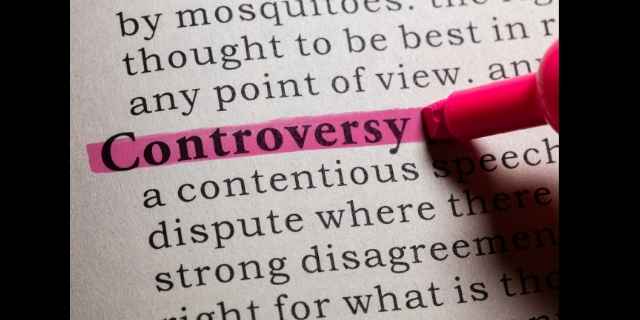The laws of Rugby Union were changed to prevent players from blocking penalty kicks by jumping under the crossbar.
There was a fun period of a few years when defending players did this both successfully and unsuccessfully.
Are there any circumstances in which you can block a penalty kick in rugby? We’ll run through the scenarios, and what happens if you break the laws.
What Are The Rules About Blocking Penalty Kicks In Rugby Union?
Defending players cannot rush forward to charge down a penalty kick in Rugby Union.
In the late 1990s and early 2000s, several matches had players jumping or being lifted to prevent the ball from going over the crossbar.
The laws were changed to prevent this tactic.

The section in the law book used to state this:
the opposing players may not take any action to delay the kick or obstruct the kicker.
That prevented defenders from running away with the ball when a penalty is awarded. However, canny players and coaches spotted that obstructing the kicker didn’t cover stopping the ball at the posts.
The laws were extended to include this extra piece:
Any player who intentionally touches the ball in an attempt to prevent a penalty goal being scored is illegally touching the ball.
World Rugby
If you haven’t seen an older match in which this happened, you may be wondering how players could intercept a ball sailing through the posts.
I’ll describe a few examples. One, in particular, was quite funny because it completely backfired.
Then I’ll look at what would happen under the current rules if a team tried this tactic.
When Did Rugby Players First Start Blocking Penalty Kicks?
Did this ever really work? It seems like you’d need telescopic arms.
But consider penalty kicks from a distance. The ball is dropping steeply as it approaches the posts. Some may bounce off the crossbar, to the relief of the kicker and supporters.
John Eales, Australia

I can’t guarantee that I’m right, but I think that the tactic started in Australia in the late 1990s. But that may be because one of the legends of the game was the perpetrator.
John Eales lifted the 1999 World Cup as captain of the Wallabies.
I’ve seen references to Eales successfully blocking a penalty kick. Apparently, he wasn’t even hoisted up by his teammates. The story goes that the lock was so athletic that he simply jumped to bat the ball down.
Unfortunately, I can’t find a match report that describes this successful block. It may be a tale that grew legs!
However, Eales was involved in a block that went wrong. I’ll describe that later. First, let’s take a look at Wasps.
London Wasps get too clever
By 2001, the coaches at English premiership club Wasps were training their players to block the ball at the crossbar.
This backfired in 2000 when a ball was dropping sharply toward the bar. Lock Richard Birkett was hoisted up and he got his fingertips to the ball.
Wasps supporters behind the posts groaned in disappointment. Why? It looked like the ball was going to dip under the crossbar.
But the lock actually pushed it over which ensured the score!
Why Did World Rugby Stop Penalty Blocking?

When did World Rugby lose patience with this tactic? There was already grumbling about it.
A French club proved to be the tipping point.
In 2001, French club Montferrand played a high-profile European match against Glasgow Warriors. The Scottish team was winning near the death when Montferrand scored a try to edge into a tight lead.
French international Olivier Magne, a fantastic player, did the kind of crazy thing that French players are sometimes prone to do. He celebrated by throwing the ball into the face of a Scottish player.
Irish referee Alan Lewis rightly awarded a penalty kick to Glasgow. The spot was on the halfway line. It would be the last kick of the match, and that is a very difficult distance for any kicker.
French players gathered under their own posts. As the ball sailed towards a winning outcome, they hoisted Troy Jacques high into the air.
This was a well-practiced move that they’d done successfully in a French league match against Castres a few weeks before. Jacque repeated his feat and stopped the ball.
But Jacques didn’t catch it cleanly. The ball fell forward to the ground.
Shouldn’t that be a knock-on?
The Glasgow captain protested strenuously to the referee. His point was that this was a deliberate knock-on, and therefore a penalty to Glasgow.
That would mean that the Scottish team could get another kick at goal.
The unflappable Lewis didn’t agree. He adjudicated that the French player had made a reasonable attempt to catch the ball.
A knock-on that isn’t deliberate would result in a scrum. But as the time was up, the game was over. Montferrand won the day.
High-profile controversy

This European cup match was a high-profile game in which the penalty block determined the result of the match.
That meant that World Rugby, the international governing body, had to take a position on the tactic.
There was a general sentiment that teams who were penalized shouldn’t get the opportunity to save themselves from suffering the consequences.
At this point, World Rugby extended the rules around penalty kicks to stop blocking.
Spectacular Blocking Backfires
I’ve already mentioned that a Wasps player only succeeded in guiding the ball over the crossbar.
When this tactic was allowed, the ideal scenario is that the defender either catches the ball or bats it sideways so it goes outside the posts.
However, there were several incidents when the defender batted the ball forward and it was judged to be a knock-on.
I’ve already mentioned that John Eales is supposed to have successfully blocked a penalty. However, there was another time when he prevented the penalty kick but didn’t hold on to the ball.
This referee ruled it as a knock-on and awarded a scrum to the other team. But think about where this was on the pitch. The opposing team now had a scrum on the five-meter line.
They scored a try from this scrum, which of course was a lot better than a penalty.
Why Can Conversions Be Blocked But Penalties Can’t?
Check out our article on blocking conversions in rugby. It’s not allowed in every circumstance (we explain it all), but there’s still a stark difference between how conversions and penalty kicks are treated.
The reasons are about the spirit or ethos of the sport.
When a team scores a try, the defending team hasn’t transgressed. Therefore, they are allowed take some steps to prevent the opposition getting more points through a conversion.
A penalty kick is different. The defending team has broken some law in the game and should not be rewarded.
What About Blocking Kicks In Open Play?
Have you seen players launch themselves superman-style toward a hapless flyhalf or scrumhalf trying to kick the ball out of their 22?
It’s very exciting when the defender manages to charge down the ball.
But why isn’t that a knock on? And what happens if it hits the defender’s head? If the ball ricochets over the sideline, who gets possession?
We’ve got a separate article on blocking kicks in rugby which will answer all your questions.
2 thoughts on “Can You Block A Penalty Kick In Rugby? (Explained)”
Comments are closed.